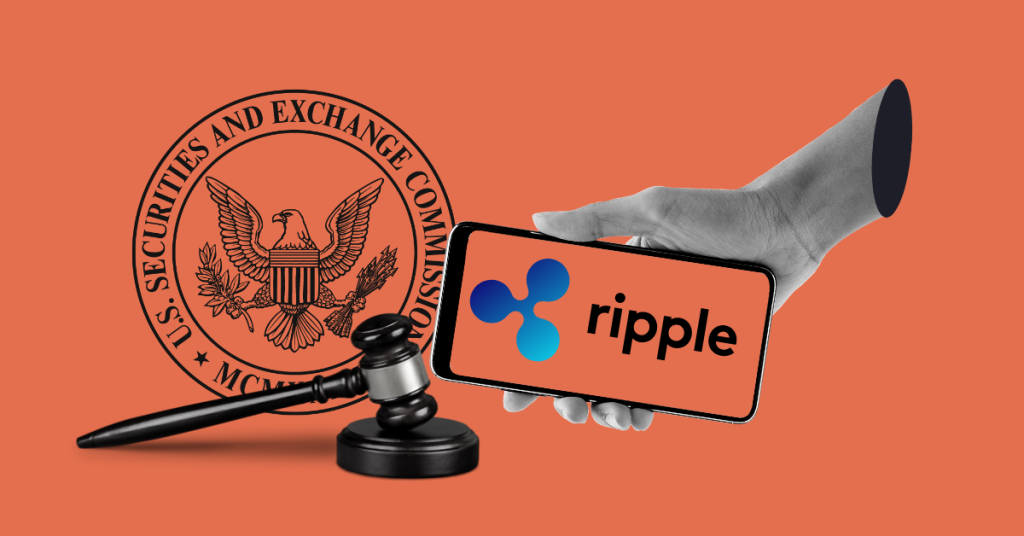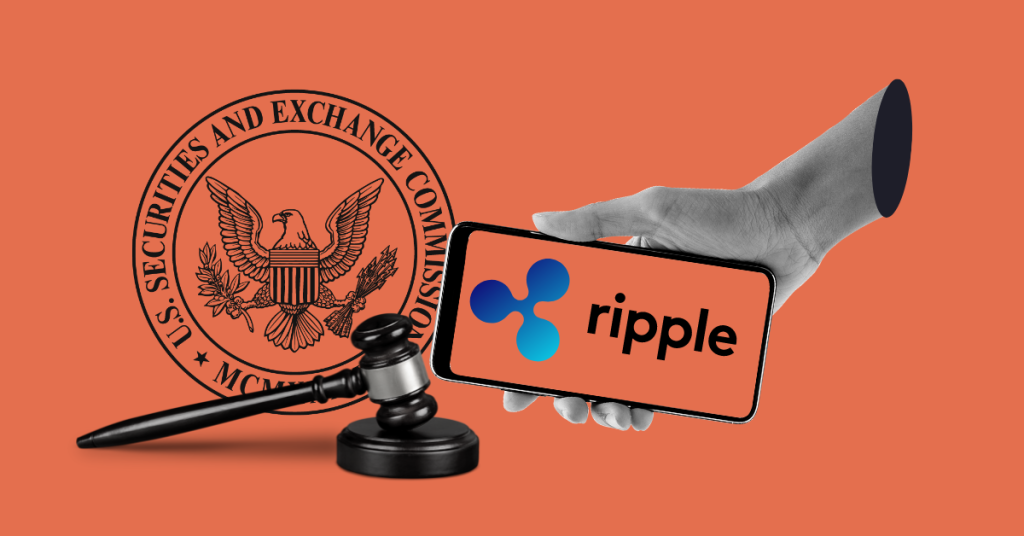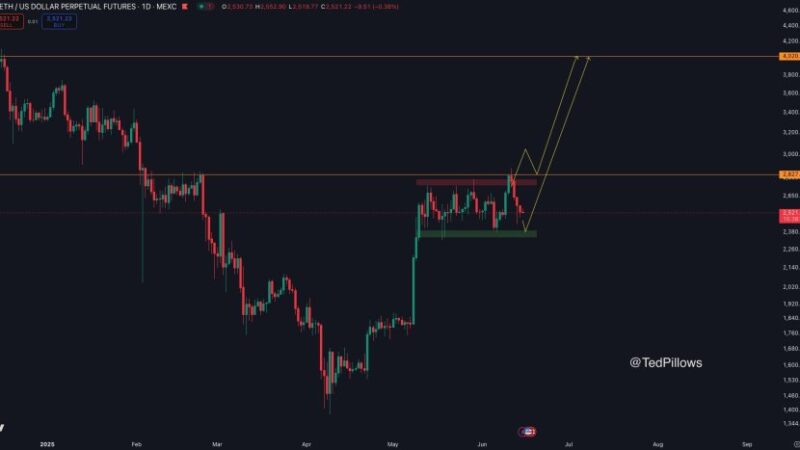Ripple Vs SEC Complete Drama: Here’s How Ripple Won The Lawsuit Against SEC


The post Ripple Vs SEC Complete Drama: Here’s How Ripple Won The Lawsuit Against SEC appeared first on Coinpedia Fintech News
The world of cryptocurrency is filled with controversy and legal battles, but none have been as high-profile as the ongoing fight between Ripple Labs and the US Securities and Exchange Commission, better known as XRP vs SEC.
It all started with a promising innovation, but quickly turned into a legal nightmare, with the SEC suing Ripple Labs for allegedly selling XRP as an unregistered security, and Ripple Labs fighting back against what they feel is regulatory overreach.
So, the question arises, Is the Ripple Lab fooling its customers?
In this video documentary, let’s dive deep into XRP vs SEC saga and examine the arguments on both sides and the implications for the cryptocurrency industry as a whole.
But first, let’s start with the background story of XRP and its significance in the cryptocurrency world.
Background on XRP
Founded in 2012, Ripple Labs is a San Francisco-based company that develops payment solutions using blockchain technology. It was co-founded by Chris Larsen and Jed McCaleb.
Ripple’s products, including XRP; XRP is a digital currency that was officially launched in 2013 and quickly gained popularity among the blockchain community due to its fast transaction speed and low fees.
Ripple’s use of XRP was unique because it created a platform that allowed banks and financial institutions to use XRP to facilitate cross-border payments. This was a game-changer in the financial industry because it allowed for faster and cheaper transactions compared to traditional methods.
At its peak, XRP reached a market cap of over $140 billion, making it the third-largest digital asset by market capitalization, behind only Bitcoin and Ethereum. But unlike Bitcoin & other cryptocurrencies, XRP is not mined, and all 100 billion coins were pre-mined at the time of its creation.
XRP’s market value before the lawsuit was on the rise, with the price of XRP reaching an all-time high of $3.84 in early January 2018. The following year, it surpassed Ethereum to become the second-largest cryptocurrency by market cap.
Many financial institutions, Banks, and payment providers like Santander, Standard Chartered, and MoneyGram have all integrated Ripple’s technology and XRP into their operations, seeing the potential for faster and cheaper cross-border payments.
However, XRP’s future was called into question when the Securities and Exchange Commission (SEC) filed a lawsuit against Ripple.
The SEC’s Allegations Against XRP
However, XRP’s future was called into question when the Securities and Exchange Commission (SEC) filed a lawsuit against Ripple.
On December 22, 2020, the U.S. Securities and Exchange Commission (SEC), filed a lawsuit against Ripple Labs, Inc. and its creators, Brad Garlinghouse and Chris Larsen.
The SEC claimed that Ripple had conducted a $1.3 billion unregistered securities offering and sold XRP to retail investors. This lawsuit caused a significant decline in XRP’s value, with the cryptocurrency losing over 70% of its value in just a few days.
As a result, Ripple and its CEO, Brad Garlinghouse, have firmly denied the SEC’s allegations and vowed to fight the lawsuit.
Let’s take a look at the different claims made by the SEC on XRP;
According to the SEC, XRP meets the definition of a security because it is an investment contract, meaning that investors buy XRP with the expectation of making a profit.
The SEC alleges that Ripple Labs sold XRP as an unregistered security, in violation of federal securities laws. The SEC also claimed that Ripple Labs raised $1.3 billion by selling XRP to investors without registering the offering with the SEC.
The SEC alleges that Ripple Labs and its executives engaged in insider trading by selling XRP while in possession of material, non-public information about the cryptocurrency’s regulatory status. If the SEC’s argument is successful, it could lead to increased regulatory scrutiny and potential legal challenges for other cryptocurrencies and their creators.
Ripple’s Defense and Counterclaims
However, ripple has quickly denied the SEC’s allegations and has mounted a strong defense against the lawsuit. Ripple’s legal team argues that XRP, is not a security, but rather a currency like Bitcoin and Ethereum, which the SEC has previously stated are not securities.
In its argument, ripple claims the SEC is relying on the Howey test to determine whether an asset qualifies as an investment contract. Ripple contends that the Howey test does not apply to XRP because XRP is not an investment contract.
Ripple’s defense also includes counterclaims against the SEC, alleging that the SEC has engaged in selective enforcement and has caused harm to Ripple and XRP investors.
Lately, ripple even denies that it conducted an illegal securities offering because it did not sell securities to investors. Ripple contends that XRP is not a security and thus the securities laws do not apply to its sale of XRP.
On March 2021, a twist in the case of SEC vs XRP was seen when the judge in the case ruled that Ripple could access internal SEC documents and communications regarding cryptocurrencies. It was a small victory for Ripple, which led to a slight recovery in the value of XRP.
However, on Tuesday, April 12, one of the Ripple community lawyers, James Filan, stated in his tweet that “this is a big win for Ripple,” in light of the new developments.
On 13 July 2023, US District Judge Analisa Torres ruled that Ripple had not violated federal securities laws when selling XRP on cryptocurrency exchanges. In the wake of a court ruling that declared the cryptocurrency was not considered security for secondary transactions, the price of XRP skyrocketed by 104%.
This decision dealt a blow to Gary Gensler and the SEC, who have been pursuing legal action against Ripple.
However, it’s important to note that the ruling wasn’t a complete victory for Ripple. Judge Torres also mentioned that the company had violated federal securities laws by selling XRP directly to sophisticated investors. This means that Ripple may still face significant legal challenges in the future.
Despite the strength of Ripple’s defense, the outcome of the case is still uncertain.
Impact on XRP and the Cryptocurrency Market
Perhaps, the XRP vs SEC case has already had a significant impact on XRP’s market value. Following the SEC’s lawsuit announcement, XRP’s overall value plummeted by more than 60%.
Initially, XRP has been delisted by some exchanges due to the ongoing lawsuit, causing a decline in its value. Eventually, the impact of the lawsuit was not limited to XRP alone, but it also had a ripple effect on the cryptocurrency market as a whole
Later the partial win for the XRP in SEC prices skyrocketed more than 80% US District Judge Analisa Torres ruled that Ripple had not violated federal securities laws.
The case has also caused uncertainty and anxiety among investors and traders in the cryptocurrency market. However, other exchanges have continued to support XRP, suggesting that the cryptocurrency still has a future.
The Future of XRP and Ripple
Despite the ongoing legal battle, Ripple continues to expand its partnerships with various financial institutions around the world. It recently announced a collaboration with the National Bank of Egypt to offer a faster and more affordable remittance service for Egyptians living abroad.
On Feb 11, 2021, Ripple officially announced that it partnered with LuLu International Exchange and Federal Bank Enhance the Cross-Border Payments Experience in India with RippleNet. This partnership highlights the potential of Ripple’s technology to transform cross-border payments, making them faster, cheaper, and more secure.
Currently, many crypto analysts predict a $10 price target for XRP amid regulatory However, the future of XRP remains uncertain. The outcome of the SEC lawsuit could potentially impact the cryptocurrency’s market value and Ripple’s business operations.
Conclusion
If the lawsuit is resolved in Ripple’s favor, it could bring a surge in XRP’s value and boost Ripple’s reputation as a leading fintech company. The future of XRP and Ripple remains to be seen, but one thing is clear: blockchain technology is here to stay.
As the legal battle continues to unfold, it will be interesting to see how XRP’s market value and Ripple’s operations are impacted.


